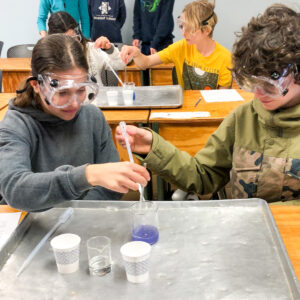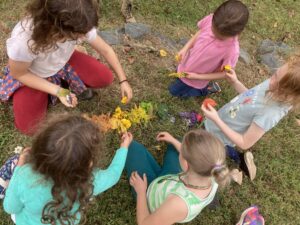“If humanity is to be able to live in social justice in the future, then people must first
educate their children in a socially appropriate way. Through the Waldorf School,
we hope to make a small contribution toward bringing this about.”
– Rudolf Steiner, at the opening of the Independent Waldorf School,
September 7, 1919, Stuttgart, Germany
Waldorf schools offer a developmentally appropriate, experiential approach to education. Music, theater, science, mathematics, writing, literature, legends and myths are not simply subjects to be read about and tested. They are experienced. Through these experiences, Waldorf students cultivate their intellectual, emotional, physical and spiritual capacities to be individuals certain of their paths and of service to the world. Waldorf education aims to inspire life-long learning in all students and to enable them to fully develop their unique capacities.

“Our highest endeavor must be to develop free human beings who are able of
themselves to impart purpose and direction to their lives. The need for imagination, a sense of truth, and a feeling
of responsibility—these three forces are the very nerve of education.”
– Rudolf Steiner
Founded in the early 20th century, Waldorf Education is based on the insights, teachings and principles of education outlined by the world-renowned anthroposophist, artist, and scientist, Rudolf Steiner. The principles of Waldorf Education evolve from a profound understanding of human development that addresses the needs of the growing child. These principles inspire and guide teachers, administrators, trustees, and parents today.
Principles for Waldorf Schools
The image of the human being as a spiritual being informs every aspect of the school.
Waldorf schools foster social renewal by cultivating human capacities in service to the individual and society.
Anthroposophical understanding of child development guides the educational program.
Waldorf schools support freedom in teaching within the context of the school’s shared agreements.
The conscious development of human relationships fosters individual and community health.
Spiritual development in support of professional growth is an ongoing activity for the faculty, staff, and board.
Collaboration and shared responsibility provide the foundations of school leadership and governance.




Learn more about Waldorf Education
- Association of Waldorf Schools of North America (AWSNA)
- Waldorf Early Childhood Association of North America (WECAN)
- Research Institute for Waldorf Education
- International Council for Steiner/Waldorf Education
- International Association for Steiner/Waldorf Early Childhood Education
- Sunbridge Institute
- Waldorf Resources
